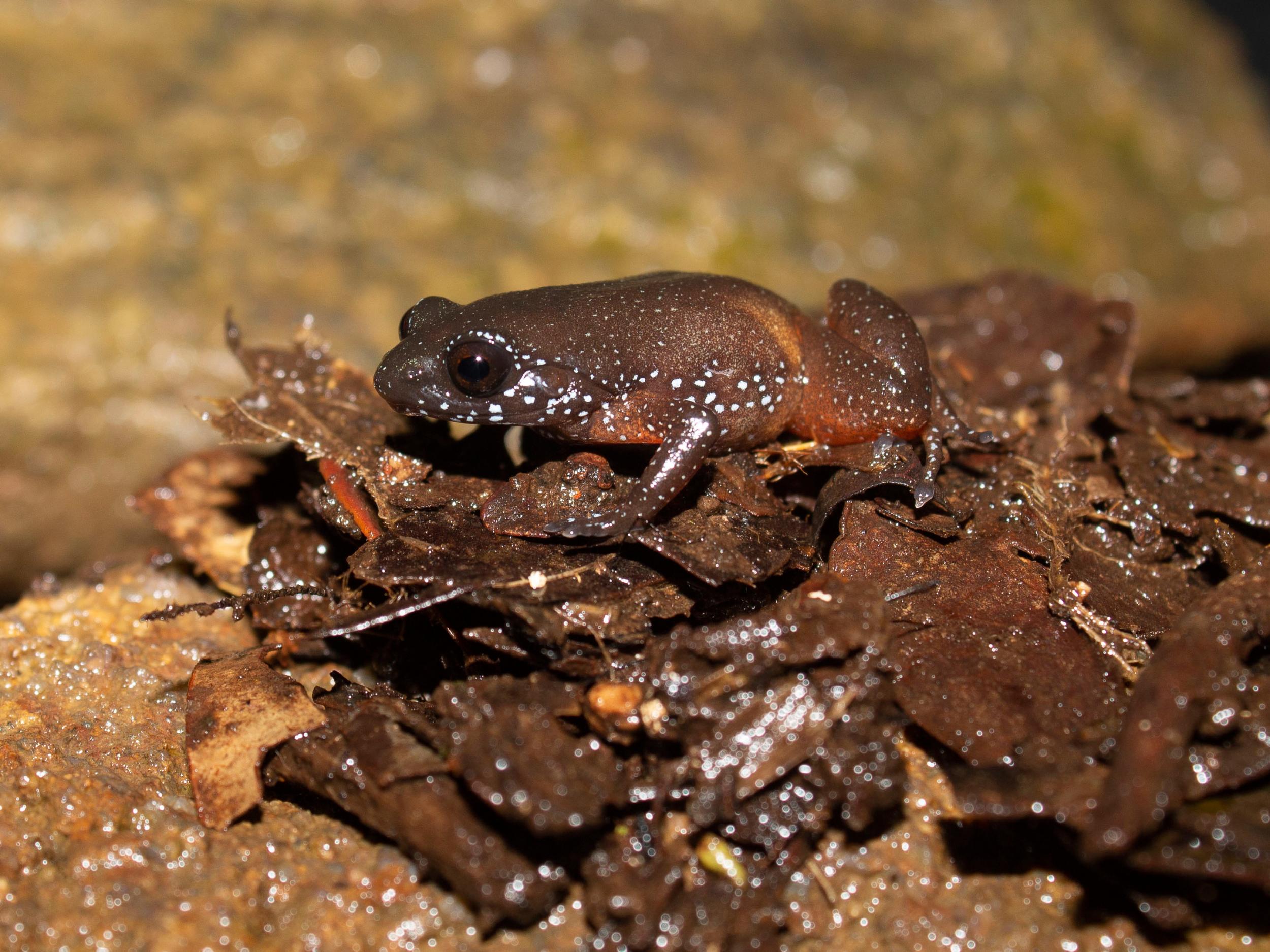New frog belonging to mysterious ancient lineage discovered in Indian mountains
'This is an oddball frog – it has no close sister species for maybe tens of millions of years'

Your support helps us to tell the story
From reproductive rights to climate change to Big Tech, The Independent is on the ground when the story is developing. Whether it's investigating the financials of Elon Musk's pro-Trump PAC or producing our latest documentary, 'The A Word', which shines a light on the American women fighting for reproductive rights, we know how important it is to parse out the facts from the messaging.
At such a critical moment in US history, we need reporters on the ground. Your donation allows us to keep sending journalists to speak to both sides of the story.
The Independent is trusted by Americans across the entire political spectrum. And unlike many other quality news outlets, we choose not to lock Americans out of our reporting and analysis with paywalls. We believe quality journalism should be available to everyone, paid for by those who can afford it.
Your support makes all the difference.An “oddball” new species of frog has been discovered hiding in the remote hills of southern India.
The starry dwarf frog is the sole representatives of an ancient lineage that split off from other amphibians millions of years ago.
It was discovered by scientists exploring the Western Ghats, a 1,000-mile-long Indian mountain range home to an enormous treasure trove of life.
Researchers have already identified hundreds of trees, reptiles and fish inhabiting the region that are found nowhere else on Earth.
“The Western Ghats is a critical region that houses many ancient lineages and spectacular radiations,” said Dr SP Vijayakumar of George Washington University, who led the research.
“This new frog is a window into the deep history of the landscape.”
After collecting various frogs during nocturnal hunts, Dr Vijayakumar and his then-doctoral supervisor Dr Kartik Shanker connected with US scientists to investigate their new discoveries in greater depth.
It was then that they recognised the significance of the specimens ultimately named starry dwarf frogs, after scanning their skeletons and analysing their DNA.
While they appeared to be distantly related to a group of around 30 species scattered across India and Sri Lanka, the last ancestor they shared with these amphibians lived a very long time ago.
They concluded the frog belongs to an entirely new branch of the tree of life that the scientists termed Astrobatrachinae.
“This is an oddball frog – it has no close sister species for maybe tens of millions of years,” said Dr David Blackburn from the Florida Museum of Natural History.
With their hill ranges forming networks of geographically isolated “islands” across the landscape, the Western Ghats form the perfect breeding ground for new species.
Creatures can become isolated and adapt to specific local environments, cut off from the rest of the world as well as from human contact.
India as a whole is also a hotbed for unique species found nowhere else on Earth, owing to its split from Madagascar around 89 million years ago that ultimately saw it collide with the Asian mainland.
This means life-forms found there have a unique blend of African and Indian backgrounds, and the scientists are currently interested in working out where the region’s frogs originated.
Since its discovery, the researchers have been unable to find the secretive frog again. Subsequent missions to the Western Ghats forests have revealed only leaf litter.
The new species was recorded in the journal PeerJ.
Join our commenting forum
Join thought-provoking conversations, follow other Independent readers and see their replies
Comments